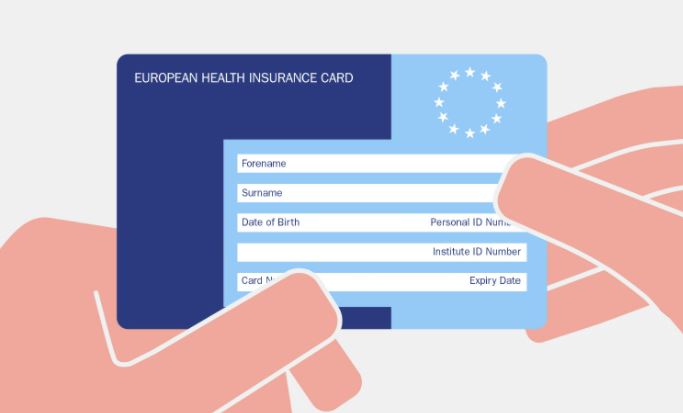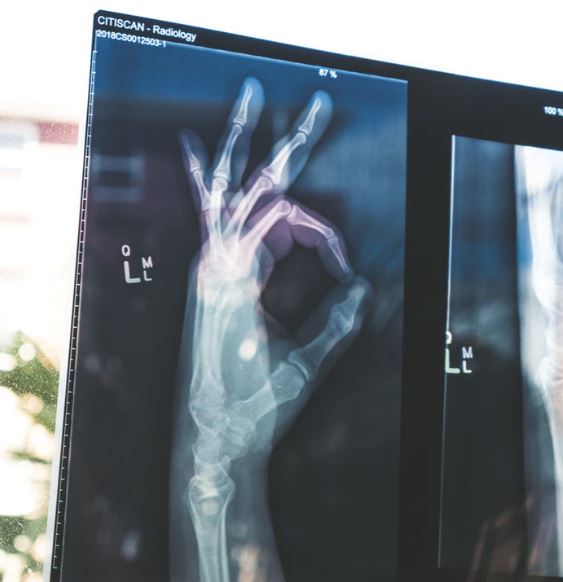Are you on your way to stay in Spain for a while but are uncertain of what applies when it comes to health insurance? Maybe it’s even time to move here and you want to be insured without it costing too much or becoming a hassle. In this blog post, we answer the most common questions about health coverage and hope that it will provide some insight to our dear readers.
European Travel Insurance – The Blue Card
As you may already know, as an EU citizen, you have the right to basic health care in Spain during the first three months you stay in the country, as it counts as tourism. You show your blue EU travel insurance card whenever you go see a doctor. Remember that only doctors and hospitals belonging to the official public health service accept the European Health Card; private care is not covered by it. You can normally easily order your European health insurance card from the Social Insurance Agency in your EU-country origin. UK citizens can apply for the card here.
Even if you were to be without your card, or even stay undocumented in Spain, you are entitled to basic medical care for at least the first three months you stay in the country, which can be a reassuring thought.

What do you do then after three months in Spain?
If you have lived in Spain for more than three months, you must either consider private insurance or register to contribute to the social insurance system. If by this time you may have started working as an employee or autonomously, the health insurance is covered through the social insurance by a sum deducted from your salary each month. The amount varies depending on income. For our UK readers, more or less the same applies. You can read more about the rules for UK citizens residing in Spain here.
What applies to permanent staying retirees?
As a pensioner from another EU-country in Spain, you have the right to medical care in exactly the same way as in your home country. However, a certificate from the your country’s Social Insurance Agency (E121 or also called S1) is required. Form E121/S1 entitles you to general health care according to the same rules as for Spanish pensioners. Here is more detailed information in regards to UK retired citizens.

What about non-permanent retirees?
If you are a non-resident pensioner, you are still entitled to free medical care. You only need to show your blue EU card together with an identification (preferably your passport). If you are from the UK you can apply for an EU medical insurance card here. You may need complementary documents proving that you are receiving a pension from your country. You ask for this certificate from the Social Insurance Agency in your country of origin.
Emergency situation
In the event of an emergency, you should have thought in advance about having the most important telephone numbers easily accessible. Doctors, hospitals, police and ambulances have different local direct numbers. But of course, everyone can also be reached via the general emergency number 112. In the event of a serious illness or accident, you first call for an ambulance. You can also call the local health center – outpatient clinic. Private hospitals also have an ambulance service that you can get help from.
You can call:
- For an ambulance. Usually a three-digit telephone number that go directly to an alarm center.
- The local health center – ambulatorio.
- An ambulance service at a private hospital.

Best in the world
Spain is known for having one of the best healthcare systems in the world. The country has a universal healthcare system and also offers private insurance options for those who want to expand their coverage. The vast majority of Spaniards and expats use the Spanish public health system (SNS, which stands for Sistema Nacional de Salud).
However, SNS does not cover all health costs. For example, you may have to pay extra fees for ambulance, dentist visits and pharmacy costs.
Private insurance can therefore be an option to cover these extra expenses. However, it can be good to remember that insurance companies often limit the list of insurance policies available and they also have a list of preferred health centres that you can visit. Therefore, it is a good idea to check with your insurance company about what exactly applies before you visit a specialist.
People sometimes turn to private insurers because it many times allows them to get to see a doctor quicker thatn in municipal health centres. Despite this, the Spanish healthcare system is robust and high-quality in comparison with other countries.
Here are some examples of average waiting times for different procedures:
Appointment with a specialist – about 65 days waiting
Easier operation – about 65 days
Major surgery – about 123 days

How do I register for municipal health insurance?
To register for Spain’s public insurance, you should first register with the social insurance at Tesorería General de la Seguridad Social (TGSS). They have offices throughout Spain, find your nearest office here.
Follow the steps to register:
- Bring your passport, residence permit, proof of address (empadronamiento) and ask for the correct form to register for a doctor at TGSS.
- With these documents, you apply for a national insurance number from TGSS.
- Once you have received your certificate from TGSS, take your passport and NIE to a local health center.
- Register for care and get your own assigned doctor at your health center.
- Apply for your health card (tarjeta sanitaria individual as it is called in Spanish or TSI).

Private health insurance
Thanks to Spain’s universal health care coverage, not many Spaniards or long-term residents have private insurance. However, private coverage can be helpful for those with special health needs.
Some large private insurance companies are Sanitas, Adeslas, Expatriate Healthcare, AXA PPP International Healthcare and Asisa. If you have a job in Spain, your employer can in many cases offer you private insurance as a benefit. In other case, you can always buy private insurance as a supplement to the public system. If you have a private insurance, make sure that you go to the health centers approved by the insurance company.
For more information about your private health insurance options in Spain, read more at the following links (in English and Spanish): Spain made simple and Acierto.
We hope that the issues around health insurance feel a little clearer after reading this.







